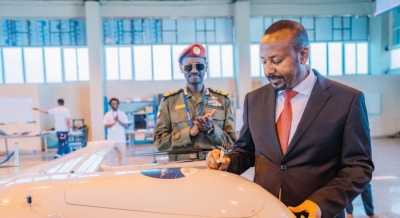Developing countries denounce the asymmetry in climate commitments. The $300 billion financing meant to support the most vulnerable nations is deemed insufficient.
During COP29, held in Baku, participating countries agreed on a deal providing $300 billion in annual financing to support the most vulnerable nations in coping with climate change impacts. While this announcement represents progress compared to past commitments, it has failed to alleviate the frustrations of developing countries, which consider the amount far below what is needed to address the climate crisis effectively.
The agreement, touted as a critical step in combating global warming, comes as 2024 is set to be the hottest year on record. In theory, this global financing aims to replace the previous $100 billion annual pledge, which was achieved late in 2022 and will expire in 2025. However, many representatives from the Global South voiced their disillusionment, denouncing a glaring asymmetry between the rhetoric of major powers and their actions. Chandni Raina, a delegate from India, described the deal as an "optical illusion," claiming it does not reflect the magnitude of the climate threat. Similarly, Tina Stege, envoy from the Marshall Islands, emphasized that the financial commitment represents a mere fraction of the funds needed to protect vulnerable nations. These criticisms underscore the disparity between the needs of poorer countries, directly facing the consequences of climate disruptions, and the response, deemed too timid, from wealthier nations.
Despite efforts by UN Climate Commissioner Simon Stiell to defend the agreement as a "safety net for humanity," the text fails to bridge the divide between the Global North and South. The absence of clear mechanisms to accelerate the energy transition, reduce fossil fuel use, or massively develop renewable energy remains a major sticking point.
The discussions, marked by protracted extensions, also saw several delegates from island nations walk out in protest. These departures reflect the growing sentiment that the concerns of countries most exposed to climate risks remain marginalized.
Wealthy Nations in the Crosshairs
Developed nations, historically the largest emitters of greenhouse gases, are being criticized for their slow pace in honoring financial and technological commitments. While some states argue that up to $1.3 trillion per year will be needed by 2035 to address climate challenges, tangible contributions remain elusive.
Uncertainty surrounding U.S. involvement exacerbates the situation. The potential return of Donald Trump to the presidency, along with promises to withdraw from international climate initiatives, casts doubt on the continuity of American funding.
Despite these signals, the goal of limiting global warming to 1.5°C above pre-industrial levels appears increasingly unattainable. Current projections indicate a rise of up to 3.1°C by the end of the century, fueled by persistent emissions and growing reliance on fossil fuels.











